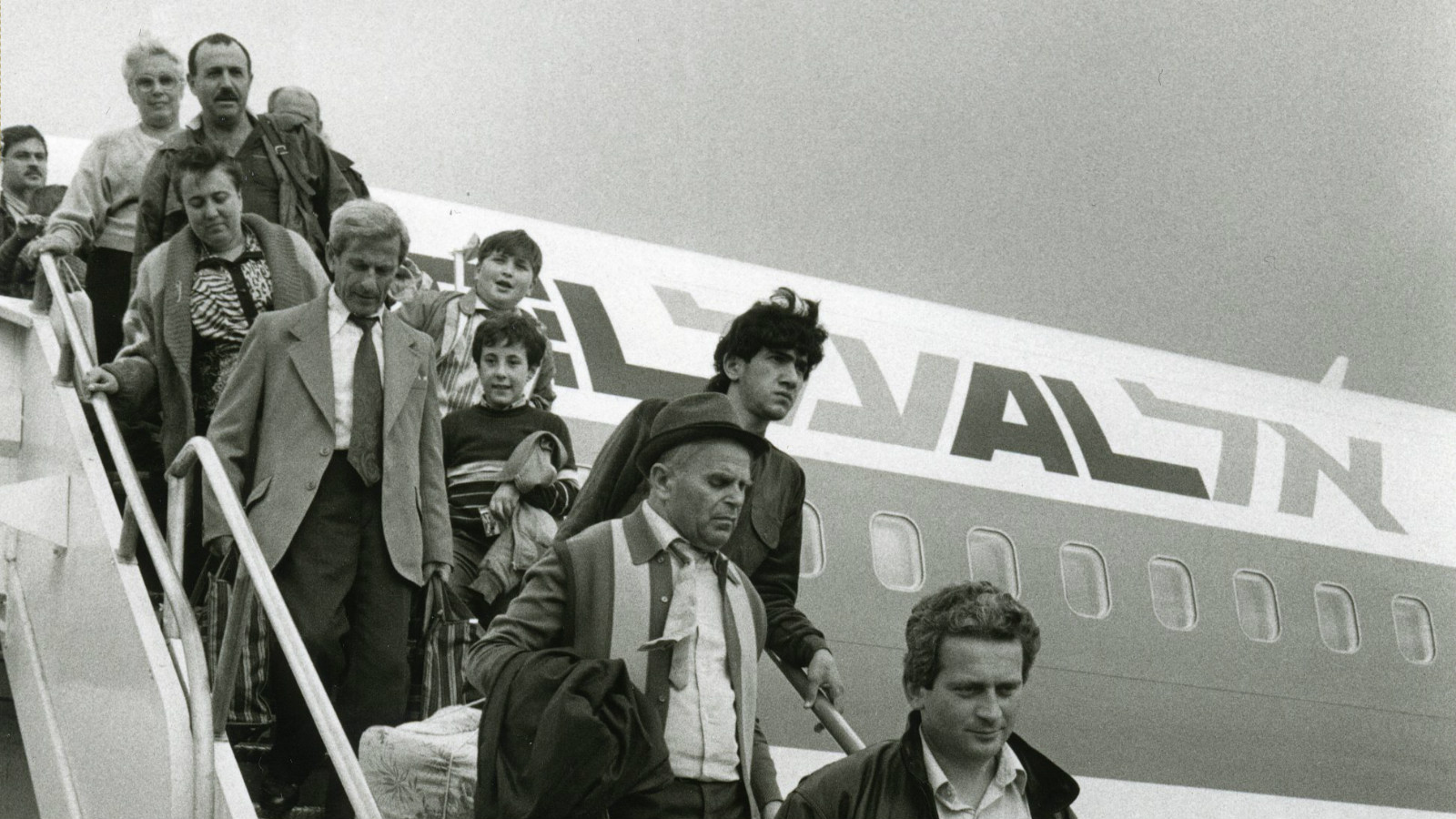Over a million citizens of the former Soviet Union (FSU) have immigrated to Israel since the collapse of the Iron Curtain in 1989. Immigrants from the FSU now make up 15% of the Israeli population, and they have transformed Israeli society.
Most of the immigrants who arrived from the FSU were urban and well-educated. As a result, they have made invaluable contributions to Israeli society, particularly in the cultural, scientific, high-tech, medical, and education fields. One in four staff members at Israel’s universities now are native Russian speakers, with an even higher concentration in the sciences.
In Israel’s increasingly heterogeneous society, many Russian-speaking Israelis choose to preserve their language and culture. There are Russian newspapers, television stations, schools, and social media outlets based in Israel.
Immigrants from the FSU have also forced Israel to ask difficult “Who is a Jew?” questions. Under the Law of Return, Israel grants automatic citizenship to anyone who has a Jewish grandparent–even though this includes people who would not be considered Jewish according to the official Israeli rabbinate. As many as a quarter of those who immigrated to Israel from the FSU under the Law of Return are not considered Jewish by Israel’s Orthodox rabbinate.

Help us keep Jewish knowledge accessible to millions of people around the world.
Your donation to My Jewish Learning fuels endless journeys of Jewish discovery. With your help, My Jewish Learning can continue to provide nonstop opportunities for learning, connection and growth.
This makes it difficult, if not impossible, for many Russian-Israelis to be married or buried in Israel–domains which are exclusively controlled by the rabbinate. Israelis today are debating how to respond to this reality. Should the Law of Return be amended to allow only those who are considered Jewish by Orthodox Jewish law? Should these immigrants be encouraged to convert, perhaps by changing the conversion process to make it easier and more inviting? Or perhaps identifying as Jewish, having Jewish ancestry, living in Israel, and serving in the Israeli army should be enough to be part of the Jewish people, without converting? These questions and others continue to divide Israeli society.
Recommended Reading
• Vladamir Khanin, Aliyah from the Former Soviet Union
• Jessica Steinberg, Nation reexamines Russian aliyah
• Jewish Agency for Israel, Aliya from the USSR/Commonwealth of Independent States
• Harriet Sherwood, Israel’s former Soviet immigrants transform adopted country
• Haviv Rettig Gur and Herb Keinon, Netanyahu: 20 years after Iron Curtain collapsed, it’s clear Russian-speaking aliya ‘rescued the State of Israel’
• Yehudah Mirsky, The Russian Wave



